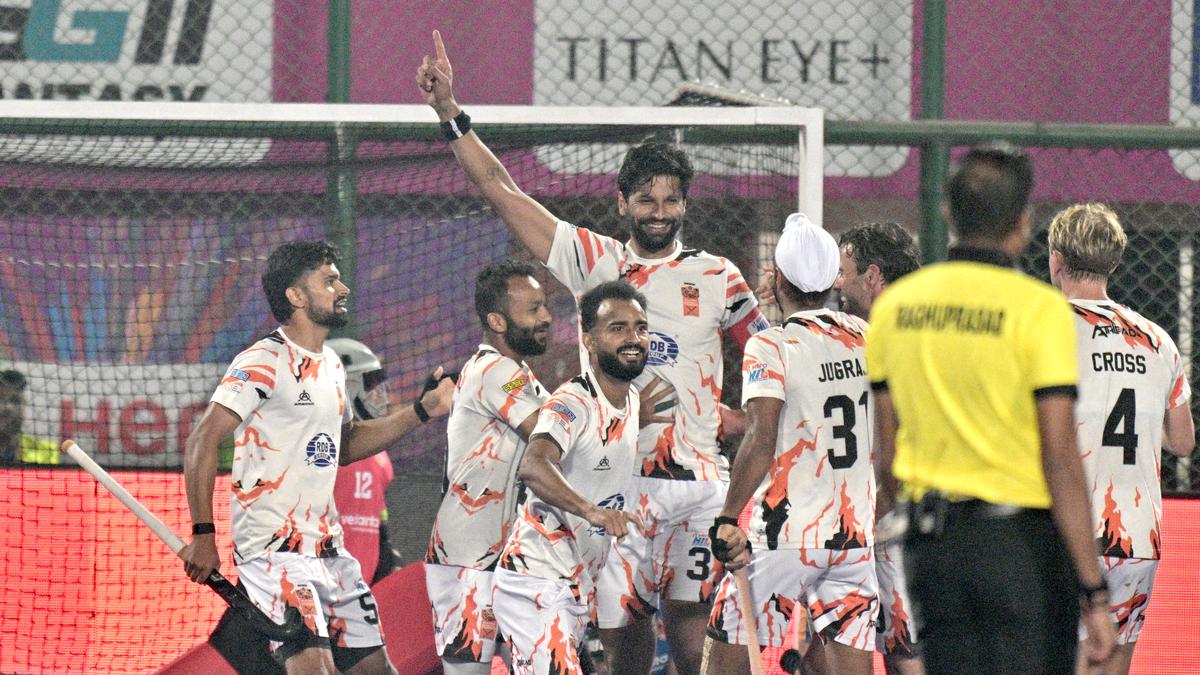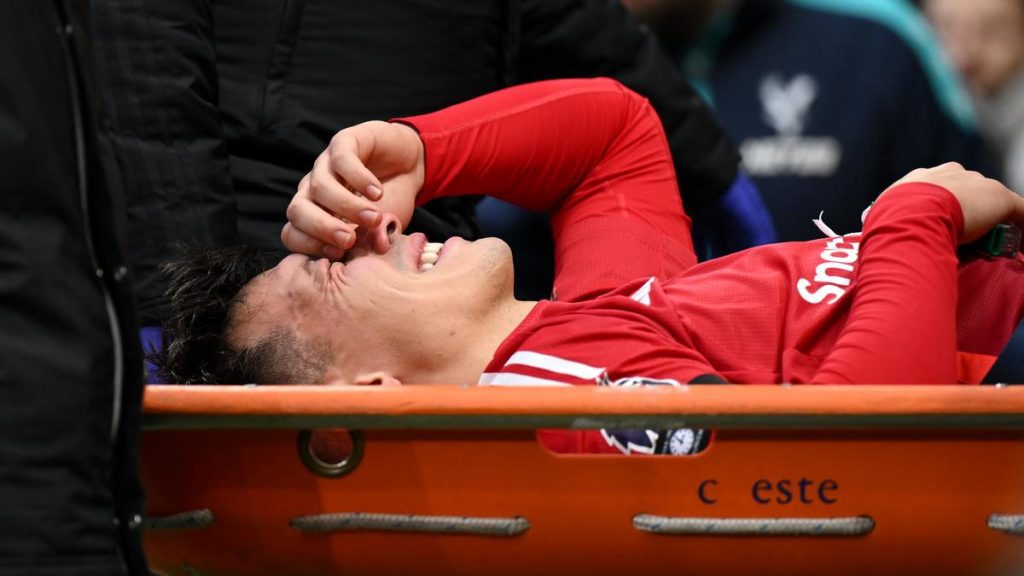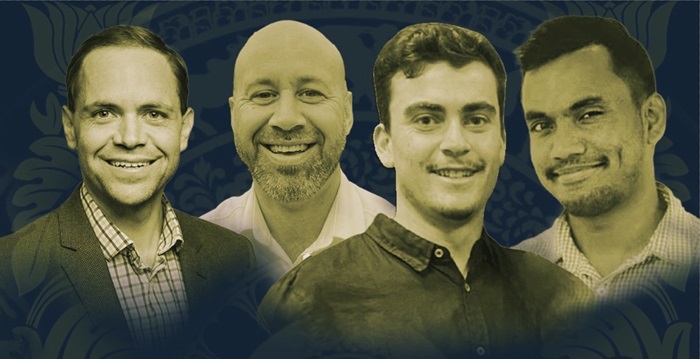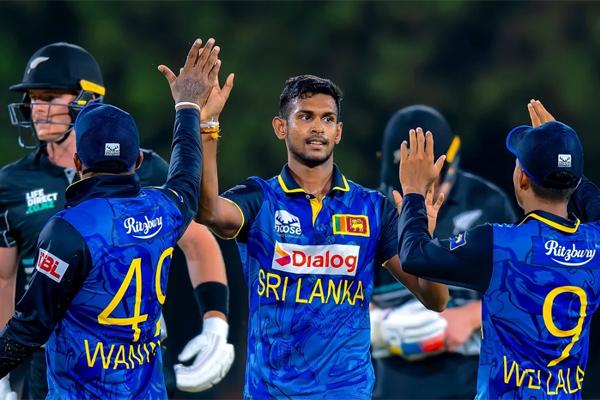Rupinder Pal Singh’s second wind: Veteran rediscovers joy in hockey at HIL


Rupinder Pal Singh’s second wind: Veteran rediscovers joy in hockey at HIL
Rupinder Pal Singh can’t help but laugh when reflecting on how much life has changed for him since he last took the field in the Hockey India League (HIL) seven years ago. Back then, he was India’s premier drag-flicker, in the prime of his career.
Now, he is a former international, having retired on a high after winning an Olympic bronze medal in Tokyo – India’s first podium finish since 1980 – and is seeking a possible swansong with the HIL.
“Obviously, fitness has changed for me [since 2017],” Rupinder says with a smile. “Hockey has evolved since then. The game is more intense, and physically, it’s different from when I last played in the HIL. It’s been four years since I retired from international hockey, so maintaining fitness levels has become more challenging.”
It is a new world for Rupinder. Analytics was making inroads into the game back then, but it is now a cornerstone of modern hockey. “The game is at a different level now, much more analytical,” he notes. “All eight teams employ different systems, whether man-to-man or zonal, so structurally, the game has changed significantly.”
Since 2021, Rupinder – fondly known as ‘Bob’ – has been a well-travelled man. He has had stints in Europe and Australia, with his time in the Netherlands proving to be an eye-opener, calling it one of his ‘best experiences’.
“Experiencing their culture and seeing their hockey system is something I will always cherish. It’s different from India. There, players often juggle secondary jobs alongside their hockey careers, yet their passion for the sport is unwavering,” says Rupinder, who played for Amsterdamsche in the Hoofdklasse for two seasons and had a brief spell with Canberra Chill in Australia’s Hockey One league.
“For us [in India], we only need to play hockey. Sometimes we forget how lucky we are to have a stable job because of this sport. We take it for granted. But playing abroad, you see players going to work, training at 6 pm, and then travelling two hours to get home. Some are plumbers, others have high-paying jobs or are doing business or internships. Seeing that makes you appreciate the game more and realise you need to enjoy hockey as much as you can.”
While many players continue into their 30s, Rupinder chose to retire from international hockey at just 30. Several injuries and being overlooked by then-coach Graham Reid in the lead-up to the Tokyo Olympics influenced his decision. “It was a difficult choice, but it wasn’t that I didn’t want to continue,” he says. “The trauma of that whole period was tough, and I didn’t want to go through it again. I didn’t want that for myself.”
Now, at 34, Rupinder is relishing his HIL experience, something he couldn’t fully embrace during his India days. “I was really excited to play here. I just wanted to enjoy hockey without worrying about what has happened, what is happening, or what will happen. That was my only goal coming into this league. Throughout our careers, we’re constantly under pressure – performance, training, expectations. This time, I wanted to play purely for the love of the game and make the most of whatever time I have left.”
It has been a while since Rupinder played in a competition of such high intensity. Yet, at the HIL auction, he was sought after by Tamil Nadu Dragons and Delhi SG Pipers before being picked up for Rs. 12.5 lakh by Rarh Bengal Tigers, who entrusted him with the captain’s armband.
Rupinder admittedly has lost more than a yard of pace, but his experience and skill still make him a valuable asset. While he has started nine of the 10 matches, his minutes have been managed carefully. He has scored five goals, including a crucial one last Monday, which set the Tigers on course for the semifinals.
With a final-four spot on the line against bottom-ranked Delhi SG Pipers, the Tigers were trailing 0-1 until the 55th minute when Rupinder returned to the pitch. The experienced defender controlled a back flick from the second battery before drilling it low into the corner to level the scores. Three minutes later, Sebastien Dockier struck to secure the Tigers’ victory and a semifinal berth.
He credits the team’s positive atmosphere for its success. “We spoke about playing our game and staying patient. We knew the goal would come if we stuck to our plan. There was no fear or panic, which is why we were able to score,” he says.
At the Tigers, Rupinder is not the first-choice penalty corner taker, with Jugraj Singh assuming that role. However, he has still converted three short corners, while Jugraj leads the league with nine goals. Their combined tally of 12 is the joint-highest in the competition, alongside Hyderabad Toofans.
Jugraj, a rising star aiming for a permanent spot in the Indian team, values playing alongside Rupinder. “I feel comfortable when I am playing with him,” he says.
From Rupinder’s days in the national team, penalty corners have evolved, with defences becoming more adept at neutralising the threat. In the ongoing HIL, only 79 out of 417 penalty corners have been converted, a success rate of just 18.94%.
“The first rushers are braver now,” Rupinder explains. “They close the line so well that scoring to the goalkeeper’s left has become much harder.”
Next year, Rupinder will turn 35, and he is unsure whether he will return for another season. “I have no plans at the moment. I will return to Punjab for my job at the PCS (Punjab Civil Services), but beyond that, I don’t know. Maybe coaching, yes. Drag-flicking coaching, definitely,” he says.
Rupinder has previously expressed a desire to become a specialist drag-flicking coach and was given the opportunity by Hockey India last year to mentor the Indian women’s team, helping refine its short corner basics.
“The key is to strengthen the basics first. Once that is done, working on the opponent’s defence becomes easier. But if you try to counter defences without solid fundamentals, it will always be a struggle on the field,” he warns.
Before transitioning fully into coaching, Rupinder’s immediate focus is on the HIL, aiming to add another feather to his cap in Rourkela.










